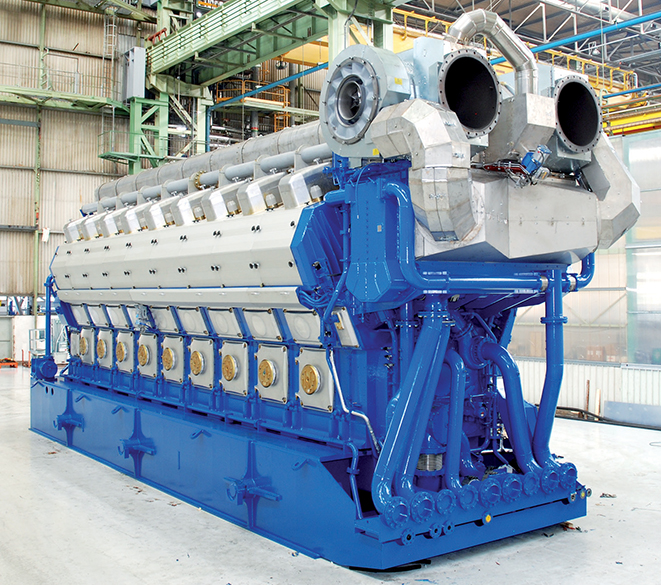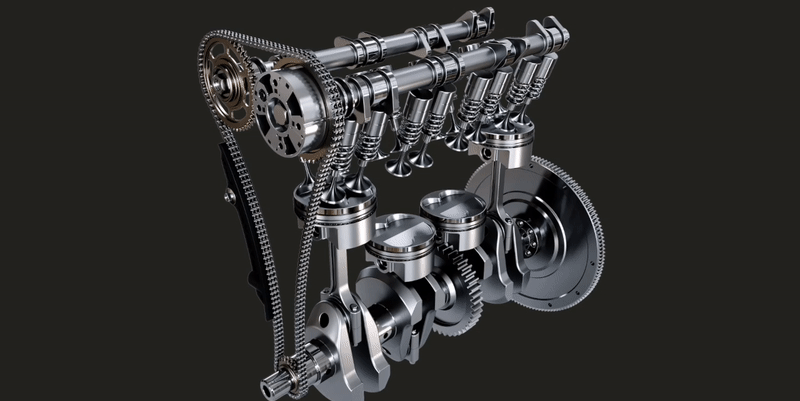Discover a Vast Array of Engines for Every Automobile and Function
The automobile landscape is significantly complex, with a diverse selection of engine types designed to fulfill details efficiency and efficiency needs across various vehicle categories. Additionally, heavy-duty engines serve the requirements of job automobiles, while green options are getting traction in the search of lasting transportation.
Types of Automotive Engines
Automotive engines can be categorized right into several unique kinds, each created to meet certain performance and performance needs. The most typical categories include interior combustion engines, electrical engines, and crossbreed systems.

Electric engines, on the other hand, operate electric power stored in batteries, supplying immediate torque and zero exhausts. These engines are becoming progressively prominent because of advancements in battery modern technology and the growing emphasis on sustainability.
Crossbreed systems combine both interior burning and electric engines, enabling automobiles to maximize fuel effectiveness and decrease exhausts by perfectly switching over in between power sources. Each engine kind presents its drawbacks and benefits, affecting aspects such as vehicle layout, meant usage, and market demand. Recognizing these differences is crucial for producers and consumers alike when selecting the suitable engine for their certain demands.
Efficiency Engines for Sports Cars
Efficiency engines for sporting activities vehicles are particularly engineered to supply boosted agility, speed, and power, establishing them apart from basic vehicle engines. These engines commonly make use of innovative modern technologies such as turbocharging, supercharging, and variable shutoff timing to optimize effectiveness and responsiveness.
Commonly, efficiency engines are made with greater compression proportions, which enable higher energy extraction from fuel. This causes excellent horse power and torque numbers, allowing rapid acceleration and higher full throttle. The light-weight products used in these engines, such as light weight aluminum and carbon fiber, add to decreased overall lorry weight, improving handling and ability to move.
Engine setups like V6, V8, and even hybrid systems prevail in efficiency cars, each offering special benefits in regards to power shipment and driving characteristics. The tuning of these engines is additionally vital; numerous manufacturers maximize the engine administration systems to provide an electrifying driving experience, often consisting of sport settings that adjust throttle feedback and gear shifts.
Effective Engines for Daily Commuters
In the world of daily travelling, effective engines play an essential duty in optimizing gas economic situation and reducing exhausts while offering trusted performance. As city populations expand and ecological issues intensify, the need for vehicles geared up with reliable powertrains has actually risen.
Modern engines made for day-to-day commuters often incorporate modern technologies such as turbocharging, straight gas injection, and crossbreed systems. Turbocharging improves engine performance by forcing even more air into the burning chamber, permitting for smaller, lighter engines try this website that do not jeopardize power output. Straight gas shot boosts fuel atomization, leading to much better combustion and boosted performance.
Hybrid engines, incorporating interior burning with electric power, further boost gas economic climate, particularly in stop-and-go web traffic, where typical engines can experience inefficiencies. Electric electric motors assist during acceleration and can operate independently at reduced speeds, reducing overall fuel usage.
Additionally, innovations in engine monitoring systems and light-weight materials contribute considerably to effective engine design. By concentrating on performance, longevity, and ecological sustainability, makers remain to supply engines that not just fulfill the needs of everyday commuting yet additionally line up with worldwide efforts to reduce carbon impacts.
Heavy-Duty Engines for Work Automobiles
Heavy-duty engines for job vehicles are routinely crafted to provide exceptional torque and integrity under demanding problems. These engines pop over to this site are made to do in environments where standard engines may falter, such as building and construction websites, logging procedures, and agricultural setups. The main focus of durable engines is their capacity to create high levels of power while keeping toughness over prolonged durations of procedure.
Usually, heavy-duty engines use innovative products and robust building techniques to hold up against the roughness of heavy work. Functions such as enhanced cyndrical tube blocks, improved cooling systems, and advanced gas injection technologies add to their efficiency. These engines often operate at reduced RPMs, which aids to enhance gas effectiveness while giving the essential power for pulling and hauling.
In addition to mechanical robustness, durable engines are often furnished with innovative electronic control units (ECUs) that handle efficiency, discharges, and diagnostics. This integration permits for better tracking and upkeep, ensuring that job lorries remain operational and effective.
Eventually, sturdy engines are a necessary component in the efficiency of various industries, offering the required power and dependability to deal with the hardest of jobs.
Eco-Friendly Engine Options
The expanding focus on sustainability has resulted in the advancement of eco-friendly engine choices that focus on minimized exhausts and enhanced fuel effectiveness. These engines are created to lessen the ecological effect of cars while still providing the performance and reliability expected by customers.
Amongst one of the most significant green alternatives are hybrid and electric engines. Hybrid engines combine traditional inner combustion engines with electric propulsion, allowing for reduced gas usage and lower greenhouse gas emissions. learn the facts here now Electric engines, on the various other hand, run entirely on battery power, generating absolutely no tailpipe exhausts and contributing to cleaner air quality.
Another encouraging advancement is the improvement of biofuel engines, which utilize sustainable resources, such as plant products, to power cars (Engines For Africa). By utilizing biofuels, these engines can minimize dependence on nonrenewable fuel sources and reduced general carbon impacts

As the automobile market advances, eco-friendly engine alternatives will play an essential duty in driving the change in the direction of more lasting transportation remedies.
Verdict
The vehicle industry uses a diverse selection of engines developed to meet numerous vehicle demands and purposes. From high-performance engines that enhance sporting activities car capacities to reliable versions focusing on fuel economic situation for daily travelers, each type serves a certain function. Durable engines accommodate robust work lorries, while eco-friendly choices, such as electric and biofuel engines, promote sustainable transport. This comprehensive variety makes sure that all driving requirements are attended to, adding to developments in auto innovation and ecological stewardship.
